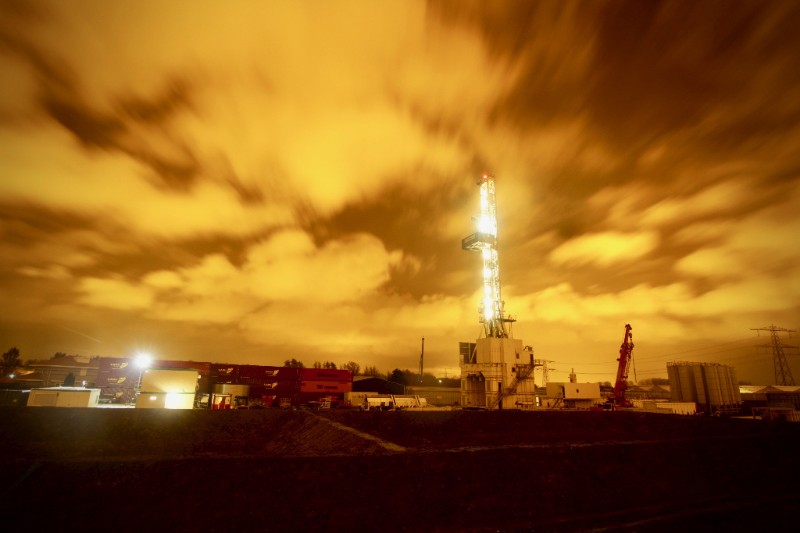 On Monday, November 6th, the Trias drilling starts! The drill bit was
initiated on Friday in the presence of participating companies,
shareholders and residents.
On Monday, November 6th, the Trias drilling starts! The drill bit was
initiated on Friday in the presence of participating companies,
shareholders and residents.
What will happen underground
On the 6th of November, the first hole, known as spud in the oil and gas industry, is drilled. It is a 125 m deep hole at the location where the protection layer for the water-bearing layers was placed in June. After this shallow hole is drilled, the first section of the deep drilling will follow. The next seven to nine days a hole of 1.298 m with diameter of about 60 cm is drilled. With a similar diameter, it is important to get the drill grit upwards. Every ten meters a sample of the mud and grit is taken. Based on these samples, the drilling crew knows in which layer and at what depth the drill bit is situated. When the depth of section 1 is reached, the pipe is inserted and cement is pressed between the borehole and the pipe to reinforce the hole. Four sections to a depth of 4,560 meters
Four sections to a depth of 4,560 meters
After about 2 weeks section 1 is ready. Then section 2, with a diameter of about 43 cm, goes down to a depth of 2,559 m. Section 3 is a borehole with a diameter of about 30 cm to a depth of 4.204 m. Section 4 drills through to the Trias layer at a depth of 4,560 m. This last hole is not cemented in because of the heat recivert. The well test is expected to take place in January 2018.
Trias Westland 24/7
From now on, Trias Westland operates 24 hours a day, seven days a week. The KCA Deutag drilling crew will be present at the drilling site 24/7. In the containers on the premises, offices, a canteen and meeting rooms have been set up. The people who are not in shift service, stay in a guest house in the area.
T&A has been involved in the Trias Westland project from the start, and is now taking care of drilling management.
